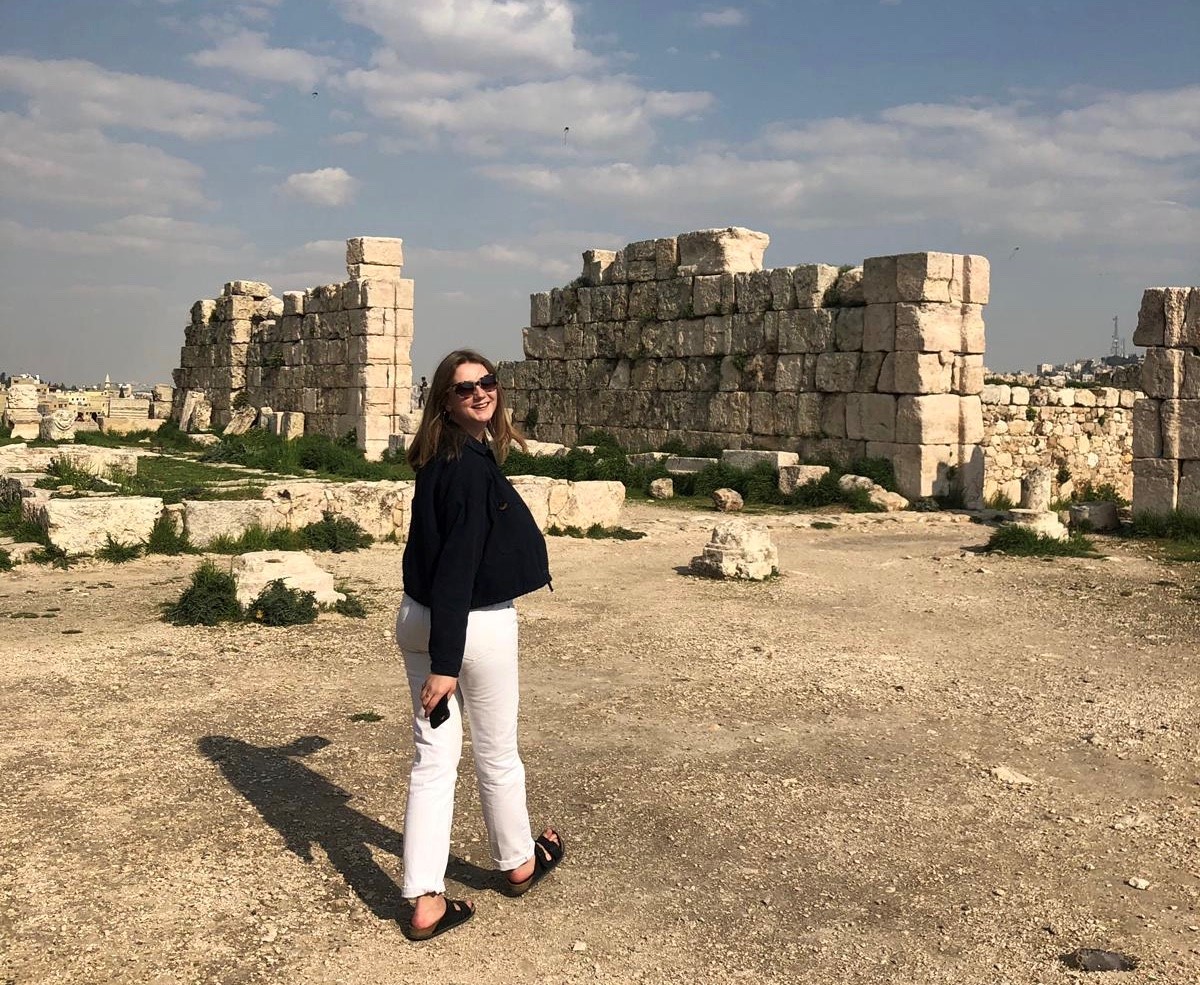Finishing university can be a daunting period of flux in itself, never mind the uncertainty brought on by a global pandemic. While this isn’t the graduating summer that Emma Penney (Arabic and French 2020) imagined, she’s found something oddly reassuring about contemplating her next steps anew.
Degree: MA Arabic and French
Current treasured object: My laptop – Zooming friends and colleagues has both kept me sane and allowed me to use this lockdown for change!
Song of the moment: ‘Do I Ever Cross Your Mind’ by Chet Atkins and Dolly Parton
Studying Arabic and French afforded me incredible opportunities to travel and use my languages for good. Spending time in France, Palestine and Jordan, it’s impossible to ignore the refugee question. Speaking Arabic meant I could contribute positively through translation and education. My plan for the summer following graduation was to work in the field in Greece as an interpreter and then, from September, start a graduate scheme. However, the coronavirus prevented me from travelling to Greece and, as has affected many of my peers, it meant the cancellation of my grad schemes, forcing me to rethink my plans.
When we talk about the refugee crisis, it is easy to forget that this is not just one crisis, and that the situation is worsening by day. There are refugees in camps all over the world, some devastated by war, the climate, or religious persecution. Living conditions before Covid-19 were inhumane, and without regular electricity, healthcare or running water, it was only a matter of time before the virus started taking refugee lives. These facts, though I had always known them, hit home hard during lockdown. If I continued to tell friends and family about the urgency of the situation, and the lack of long-term solutions, how could I accept my own plan to dedicate just a summer to supporting refugees, to later abandon it for a job?
I used to think that when I graduated university I would have all the answers, but now I think I never will. What I do have is a plan.
The concept of the “graduate blues” has been passed around for several years, referring to the feeling that after leaving university graduates can feel there is no clear path. From the age of five we have followed the academic route, and completing your degree has always appeared to mean you were an accomplished adult who would know exactly what they wanted to do. As students it felt like studying was the pathway to enacting change, and yet here we are graduating with no real idea of how to go about tackling the problems we so desperately want to resolve. The current graduating cohort is entering a terrifying world. With the climate emergency, tensions between super-powers and a lack of international cooperation to tackle the problems we face, the future of our planet looks gloomy to say the least. Add in the coronavirus causing a likely global recession and revealing dramatic societal disparity, if you weren’t nervous before you will be now. And, of course, we are seeing graduate jobs being cancelled and deferred.
And yet, somehow, this lockdown has given me hope. By preventing the frantic rush of exams and goodbyes and job interviews, it has forced me to take stock of what is really important to me. What causes do I believe in, who do I want to fight alongside, and what are the skills I have that can make the changes? I used to think that when I graduated university I would have all the answers, but now I think I never will. What I do have is a plan. I can’t fix the broken systems in a day or even in a year. It is OK to pause and work out what training or education you need to get there. I will not be able to resolve the refugee crisis alone, or without more knowledge, and it is better to take the time to develop that knowledge than to struggle in ignorance.
In some ways, a global pandemic has helped me prioritise. While I would have originally preferred to have been travelling with a secure job waiting for me in September, the cancellation of my graduate schemes has forced me to think out my own path. Somehow, despite the complete uncertainty of the future, working out my own next step is oddly reassuring. I am in the lucky position to be able to live at home, and consider my options without rushing into a job that may not be right for me. In the meantime, doing voluntary work for SolidariTee (a student led charity offering grants to refugee legal aid clinics), and The Ampersand Project (a social enterprise working to improve the mental health of young people in Scotland) is allowing me to enact change while earning money as a nanny. As we are emerging from the lockdown, the working world is becoming a completely different place, so perhaps it is a privilege to be entering it without having it all worked out.



